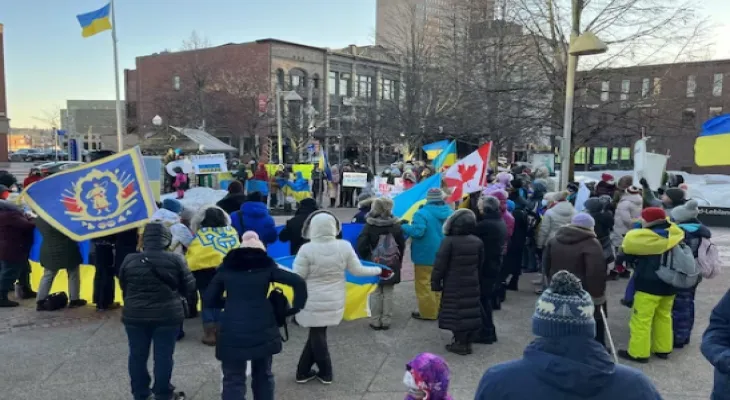Search here
Newspaper
Search here

Arab Canada News
News

Published: February 22, 2024
As the second anniversary of the Russian military invasion of Ukraine approaches, Ukrainians displaced by the war who are looking to make Canada their permanent home have few answers about what the federal government will do to allow them to remain here.
The wide-scale Russian invasion of Ukraine, which began on February 24, 2022, also caused a large-scale refugee crisis, forcing millions of Ukrainians to flee their country.
Since then, the federal government has issued 958,190 temporary emergency visas to Ukrainians to allow them to work or study in Canada while awaiting the end of the war in their country.
As of last January 27, 221,231 people had arrived in Canada under the "Canada-Ukraine Emergency Travel Authorization" (AVUCU / CUAET).
92% of Ukrainian refugees intend to stay in Canada and apply for permanent residence, according to a survey conducted late last year by the "Operation Ukraine Safe Haven" organization in partnership with the Federal Immigration, Refugees and Citizenship Ministry among Ukrainians holding the temporary emergency visa.
Only 1.4% of respondents said they intend to return to Ukraine.
But without a specific program, many of these Ukrainians will not be eligible for permanent residence in Canada through the usual channels, said Randall Baran Chong, founder of the "Pathfinder for Ukraine" organization, a group that has helped war-displaced Ukrainians navigate the Canadian immigration system.
Baran Chong explained that some of these individuals have applied for asylum on humanitarian grounds, which are criteria not designed to accommodate such a large number of Ukrainians who have come to Canada since the Russian invasion of their country.
"Many Ukrainians are currently in a very difficult situation," added Baran Chong, "and we want to provide them with a dignified path to permanent residence, instead of these programs that suit other circumstances."
The organization run by Baran Chong launched a petition calling for a dedicated program to provide permanent residence for war-displaced Ukrainians in Canada, and requested the Chair of the Standing Committee on Foreign Affairs in the House of Commons, MP Ali Ehsassi, to present a motion for this purpose in the Parliament.
Once that occurs, the government must respond within 45 days.
"We feel that this petition will give us a chance for Ukrainians to hear an official response from the government regarding a specific path to permanent residence," said Baran Chong.
It is noted that the federal government allows individuals holding an emergency visa to apply for its extension. It has also launched a program granting permanent residence to people who have family members with Canadian citizenship.
Comments